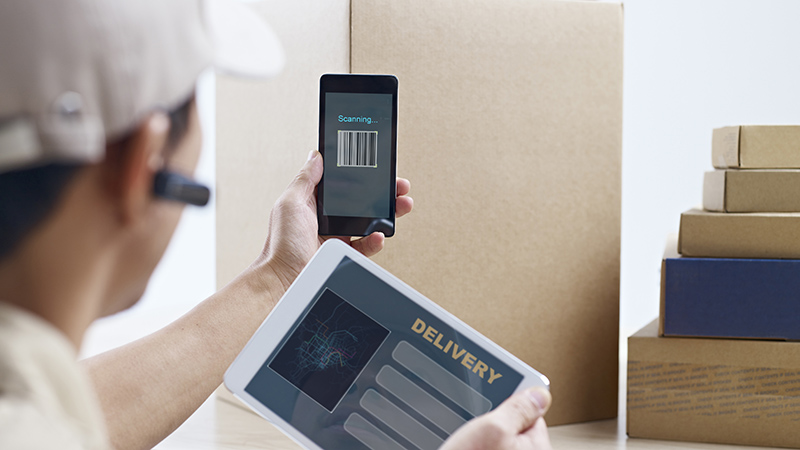
Angle

Digital Mailroom: A Vital Component of your Information Governance Strategy
- Business Transformation
- 4 Mins
Today, data is king. Organizations are constantly balancing an influx of data that they must store, retain, or process. When it comes to implementing an information governance (IG) program, businesses are tasked with accounting for all information assets—including both physical and electronic types of information.
While the volume of electronic data continues to explode, physical documents are still present within most organizations, and these physical documents require protocols for proper disposition. So, where are all of these physical documents coming from? After digging in and investigating, you find that many of these physical documents enter an organization through a simple place: the mailroom.
The traditional mailroom, often overlooked, can become a bottleneck in the flow of information. This is where the Digital Mailroom comes into play, transforming the way organizations handle incoming physical mail by converting it into digital formats. By adopting a Digital Mailroom, companies can streamline their information processing and bridge the gap between physical and electronic data.
It can be difficult to bridge the gap between digital and physical data in an information governance program. With multiple types of data entering an organization that require proper storage, managing the various items can become an information labyrinth. However, there is an option to streamline this process which is becoming a popular option with businesses: the Digital Mailroom.
What is Digital Mailroom (DMR)?
Digital Mailroom (DMR) is an effective method for converting physical documents into electronic content. On a basic level, DMR ensures that physical mail is collected, scanned, and delivered to its intended audience within a few hours, regardless of their geographic location. More than merely scanning the mail, it is an end-to-end workflow from receipt and logging of incoming pieces through scanning and routing of digitized content to an organization’s repository of record. The process can be performed on-site or off-site, making it an attractive candidate to safely move to a lower-cost facility and free up existing space.
By implementing a Digital Mailroom solution, organizations can significantly reduce the time and cost associated with manual mail handling. The Digital Mailroom not only increases efficiency but also enhances security by ensuring that sensitive documents are properly tracked and delivered. Embracing a Digital Mailroom allows businesses to modernize their operations and stay competitive in today's fast-paced digital environment.
How can Digital Mailroom Services play a role in an information governance strategy?
Many physical documents and records are converted to electronic content to become the “official” version for document handling purposes. Digital Mailroom services are an effective “front-end” to an IG program that is looking to manage this content.
Overall, a single, electronic version of a document is easier to manage in a Document Management System (DMS) or Enterprise Content Management (ECM) system, share with colleagues, apply retention, and ultimately purge, per applicable policies. Any paper versions of the document can be treated as “courtesy” sets that can be destroyed at any time without the need for tracking or retention.
The Digital Mailroom plays a crucial role in ensuring that physical documents are seamlessly integrated into digital workflows. By digitizing incoming mail, organizations can enhance their information governance by having a complete, searchable, and accessible repository of all documents. This streamlined approach reduces the risk of lost or misplaced documents and improves compliance with regulatory requirements.
Additionally, the basic tenets of an information governance initiative would include ensuring visibility into all information assets while maintaining access control and security. Visibility allows an organization to leverage the information in support of its business needs. All too often, an organization is not able to retrieve or apply knowledge already within its purview because the organization lacks a comprehensive IG plan. As a result, businesses can lose unnecessary opportunity costs like lost time and productivity. Further, proper document handling for greater visibility includes the utilization of approved systems which allows for compliant, secure access that the organization has vetted and approved.
With the current explosion in remote workforces, the Digital Mailroom also gives users anywhere insight into the information that they could lose by not being physically in the office. Remote employees can receive and process mail in real-time, thanks to Digital Mailroom solutions, ensuring business continuity and efficiency. By making information readily available through a Digital Mailroom, organizations can support flexible work arrangements without compromising on security or productivity.
Is Digital Mailroom right for your organization? Consider the answers to these questions:
- Is your organization allowing greater, more secure access to all information as employees adapt to new working models?
- Have you considered all the information that still comes into your organization in paper form?
Adopting a Digital Mailroom workflow as standard operation procedure answers these questions by using technology, existing systems, and access to information in a manner that is compliant with overall information governance programs.
By integrating a Digital Mailroom into your operations, you can enhance your organization's agility, reduce physical storage needs, and improve compliance with regulatory requirements. The Digital Mailroom is not just a trend but a strategic tool that can significantly impact the way your organization handles information. Embracing Digital Mailroom services positions your organization for success in an increasingly digital world.
The contents of this article are intended to convey general information only and not to provide legal advice or opinions.
